 |
| Science, technology and innovation continue to be institutionalized for development. |
With breakthrough regulations on research autonomy, commercialization of results, incentives for talent and a focus on businesses, the draft Law promises to unleash creative potential, bringing Vietnam closer to the goal of prosperity in the digital age.
Legal breakthrough, creating the future
In the context of the Fourth Industrial Revolution and digital transformation reshaping the world, science, technology and innovation have become the key to sustainable development. Vietnam has made an impressive step forward, from 48th place in 2022 to 44th out of 133 in the Global Innovation Index (GII) Report in 2024, according to Document No. 163/TTr-CP. However, the 2013 Law on Science and Technology revealed many limitations: lack of mechanism to attract talent, not synchronized with the requirements of digital transformation, and not clearly defining the role of enterprises in technology application.
The draft Law on Science, Technology and Innovation was issued to overcome these shortcomings, institutionalize the Party's policies, especially Resolution No. 57-NQ/TW dated December 22, 2024, and fundamental documents such as Resolution of the 13th National Congress, Socio-economic Development Strategy 2021-2030, and Resolution No. 193/2025/QH15. The submission emphasized the goal of creating a comprehensive legal framework, helping science, technology and innovation contribute to economic growth, sustainable development, international integration and improving the quality of life. The review report of the Committee on Science, Technology and Innovation agreed on the necessity of promulgating the law, and proposed improvements to ensure feasibility, consistency and immediate implementation.
The draft law consists of 8 chapters and 95 articles, an increase of 14 articles compared to the 2013 Law thanks to the addition of regulations on innovation and restructuring. Core policies include research innovation, capacity development, investment attraction, business promotion, knowledge dissemination and support for creative startups. The Committee on Science, Technology and Innovation commented that the draft reflects the spirit of innovation, especially in granting autonomy and encouraging businesses, creating a foundation for science, technology and innovation to become economic drivers.
The first highlight is the unprecedented autonomy for research organizations. Articles 8, 14, 18, 19, 26, 39, 44 and 67 stipulate that organizations are free to decide on their apparatus, expenditures and implementation methods, and are evaluated based on final results rather than process control. The draft accepts risks, exempts from compensation if research fails, and encourages scientists to pursue challenging problems. Some delegates said that accepting risks encourages creativity, but a strict post-audit mechanism is needed to ensure transparency when using the state budget.
Regarding commercialization, Articles 25, 26, 27, 30 and 31 allow the host organization to own and decide on research results from the state budget, with the researcher enjoying at least 30% of the profits. This provision solves the bottleneck of pricing and technology transfer. Some delegates assessed that transferring ownership will shorten the time to bring technology to market, creating indirect revenue through taxes, but a flexible pricing mechanism is needed to support incomplete results, avoiding wasted potential.
High-quality human resources are prioritized with tax policies, rewards and support for foreign experts in Articles 56, 57, 59 and 83. The draft defines criteria for talent, attracting overseas Vietnamese and international experts. Some delegates said that talent is a valuable asset, it is necessary to supplement the recognition of the title of academician for outstanding scientists, including foreigners, to encourage long-term dedication, as proposed in the Review Report.
Enterprises are placed at the center with innovation on par with science and technology in Chapter V. Articles 6, 19, 20, 31-35, 38, 39, 71-72, 82-84 support startups, venture capital funds and encourage enterprises to contribute over 60% of social resources to science, technology and innovation. The report emphasizes that enterprises are the leading driving force, with the goal of mobilizing private resources exceeding the state budget. Some delegates commented that enterprises are the bridge to bring research to life, but the draft needs stronger mechanisms, such as exemption from liability for testing new technologies or support for public assets for startups.
The draft cuts 81% of administrative procedures, from 11 to 2 compared to the 2013 Law, replacing them with digital management, such as eliminating registration of science and technology activities. The Law decentralizes the management of science, technology and innovation programs from the Ministry of Science and Technology to ministries, branches and localities, focusing on applied research, while the Ministry prioritizes basic research and core technology (Article 15). Some delegates assessed that decentralization helps localities proactively solve practical problems, but clear instructions are needed to avoid overlapping responsibilities. The four new procedures on innovation in Articles 45, 47, 48 and 57 are proposed to be designed simply, creating favorable conditions for start-up businesses.
Continue to improve to make it feasible
The Committee on Science, Technology and Innovation assessed that the draft is eligible to be submitted to the National Assembly at the 9th Session, recognizing preferential policies such as financial reform through the fund mechanism (Articles 67-69), simplifying procedures (Article 50) and accepting risks (Article 18). However, the committee pointed out four points that need to be completed so that the law can truly become an “original law”.
Firstly, the draft is still heavily administrative in its thinking, lacking sufficient mechanisms for private enterprises to lead innovation. Some delegates proposed expanding the exemption from responsibility for testing new technologies, not limited to the task of using the budget, and supporting public assets for incubators and startups, in order to unlock social resources. The review agency also emphasized the role of the private economy as the leading driving force, requiring policies to create an open space for freedom of research and application of technology, as required by Resolution 57-NQ/TW.
Second, regarding scientists, the committee requested clarification of the scientist-centered principle in Article 11, adding the right to publish research results during the retention period and recognizing the title of international academician. Scientists need to have their creative rights protected and be honored appropriately to devote themselves wholeheartedly. The Committee on Science, Technology and Innovation also proposed recognizing national universities and academies as special science and technology organizations, along with a mechanism for final product allocation to reduce administrative burdens.
Third, regarding legal synchronization, the committee called for reviewing and amending 14 relevant laws in Chapter VIII, such as the Tax Law, Investment Law and Land Law, to avoid duplication or omission. The committee is cautious about legalizing Resolution 193/2025/QH15 in Article 95 due to lack of practical assessment, and considers Article 94 on the Government's right to issue documents beyond the law. Some delegates said that legal consistency is a vital factor, and high-level opinions should be sought if this unusual provision is to be maintained.
The Committee on Science, Technology and Innovation also proposed to balance the structure of 8 chapters and 95 articles, ensuring harmony between natural sciences and humanities, increasing logic for easy application of the law. The draft needs to clarify the doctrine of science, technology and innovation development, effectively inherit the 2013 Law and create space for creativity.
The Law on Science, Technology and Innovation has a strategic vision, turning science, technology and innovation into pillars for the digital economy and digital society, while enhancing Vietnam's position in the international arena. The submission emphasizes that the law will liberate social resources, encourage innovation and ensure national defense and security. However, the challenge is not small: synchronously amending 14 laws requires close coordination; mobilizing 60% of resources from enterprises requires an attractive mechanism; and the post-audit mechanism must be scientific to avoid abuse of incentives. The 9th session will be an opportunity for the National Assembly to discuss in depth, complete the draft, and ensure the law is feasible as soon as it comes into effect.
Source: https://thoibaonganhang.vn/buoc-ngoat-the-che-hoa-doi-moi-sang-tao-162789.html


![[Photo] Nghe An: Bustling atmosphere celebrating the 50th anniversary of Southern Liberation and National Reunification Day](https://vphoto.vietnam.vn/thumb/1200x675/vietnam/resource/IMAGE/2025/4/29/64f2981da7bb4b0eb1940aa64034e6a7)
![[Photo] Ho Chi Minh City residents "stay up all night" waiting for the April 30th celebration](https://vphoto.vietnam.vn/thumb/1200x675/vietnam/resource/IMAGE/2025/4/30/560e44ae9dad47669cbc4415766deccf)
![[Photo] Ho Chi Minh City: People are willing to stay up all night to watch the parade](https://vphoto.vietnam.vn/thumb/1200x675/vietnam/resource/IMAGE/2025/4/29/cf71fdfd4d814022ac35377a7f34dfd1)
![[Photo] General Secretary attends special art program "Spring of Unification"](https://vphoto.vietnam.vn/thumb/1200x675/vietnam/resource/IMAGE/2025/4/29/e90c8902ae5c4958b79e26b20700a980)
![[Photo] Hanoi is brightly decorated to celebrate the 50th anniversary of National Reunification Day](https://vphoto.vietnam.vn/thumb/1200x675/vietnam/resource/IMAGE/2025/4/29/ad75eff9e4e14ac2af4e6636843a6b53)
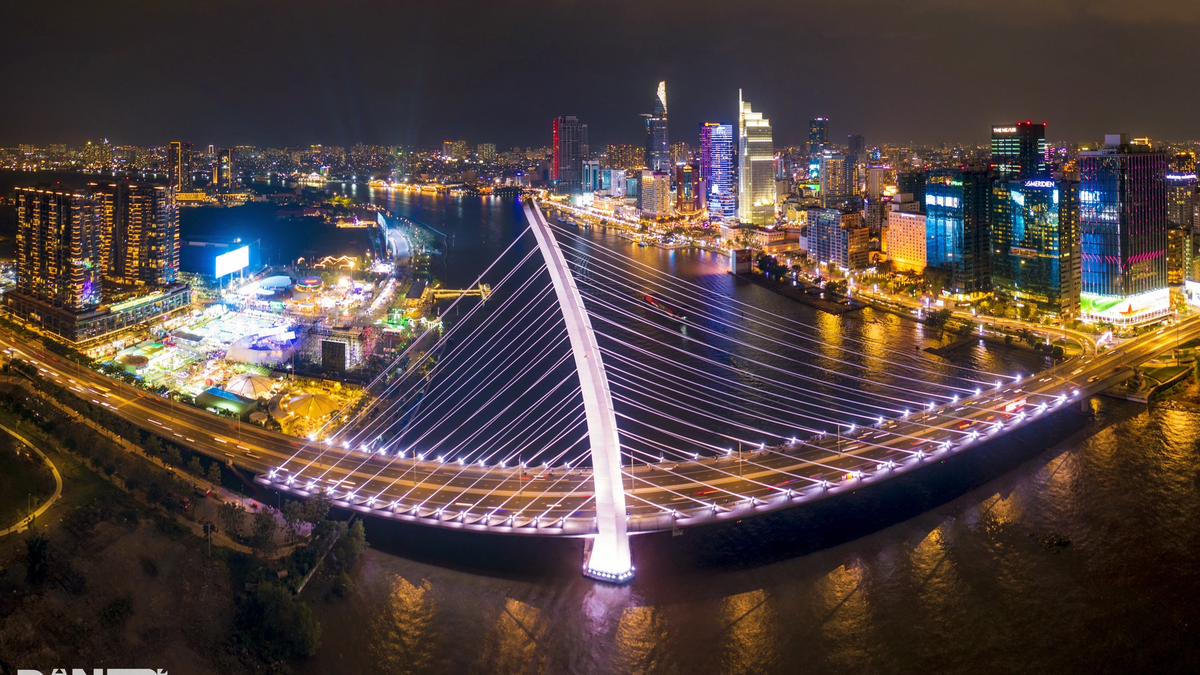
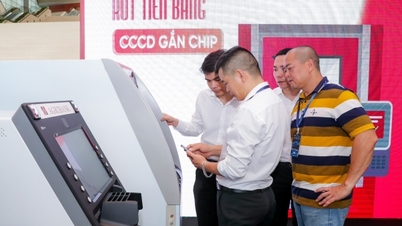


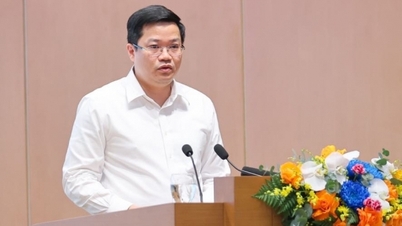










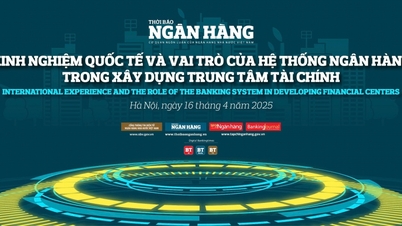

![[Photo] People choose places to watch the parade from noon on April 29](https://vphoto.vietnam.vn/thumb/1200x675/vietnam/resource/IMAGE/2025/4/29/3f7525d7a7154d839ff9154db2ecbb1b)
![[Photo] Prime Minister Pham Minh Chinh meets to prepare for negotiations with the United States](https://vphoto.vietnam.vn/thumb/1200x675/vietnam/resource/IMAGE/2025/4/29/76e3106b9a114f37a2905bc41df55f48)





























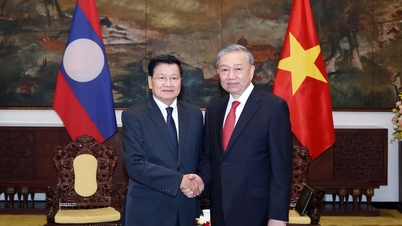

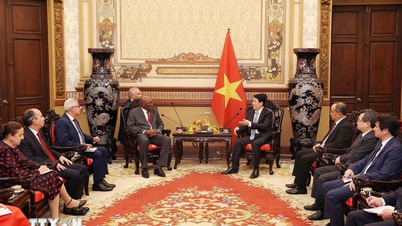


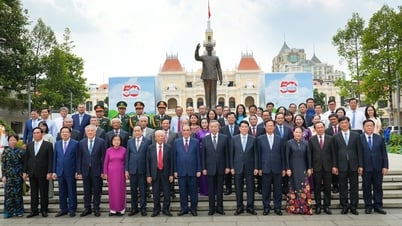






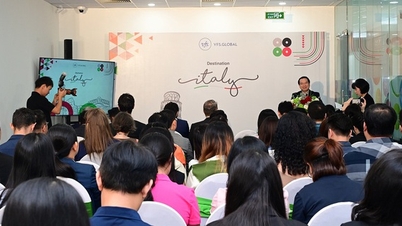

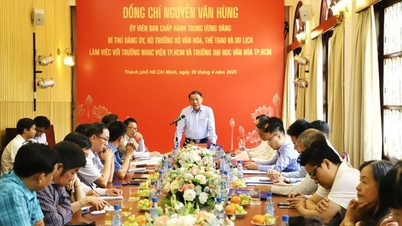
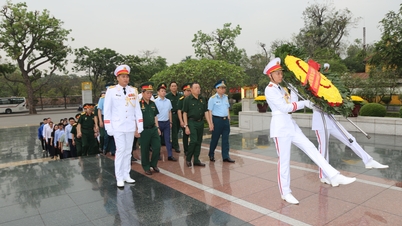























Comment (0)